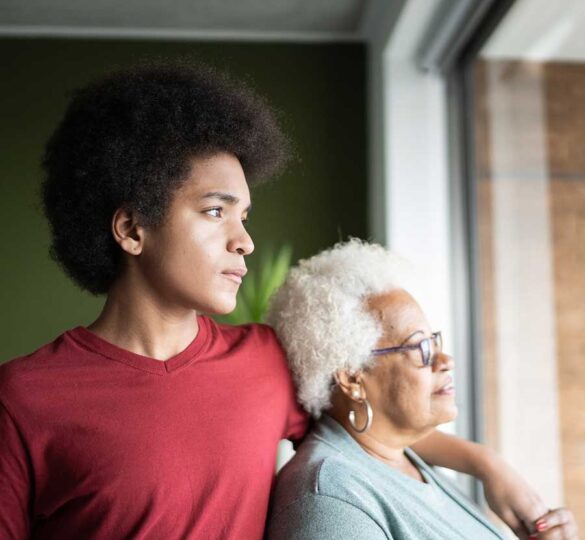GRF Survey Reveals Glaucoma Has Significant Impact on Patients’ and Caregivers’ Daily Lives, Well-Being
Findings suggest that while patients and caregivers are determined to manage the disease, many still worry about loss of vision and independence, and have difficulty achieving IOP goal.

Glaucoma Research Foundation surveyed 1,608 glaucoma patients and family/friend caregivers to learn more about the daily impact of the disease, as well as current information and support needs. Findings reveal that glaucoma impacts patients and their caregivers on a daily basis, and that many patients struggle to control their disease.
“We know that patients and caregivers have difficulty managing glaucoma, its practical implications and their fears related to it. This survey helped us quantify the current patient and caregiver experiences so that we can find new ways to reduce the burden of the disease for everyone,” said Andrew Iwach, MD, GRF board chair and executive director, Glaucoma Center of San Francisco.
A total of 1,548 adult glaucoma patients and separately, 60 glaucoma-patient family members and friends who serve as caregivers, completed GRF’s National Glaucoma Impact Survey. Overall, findings confirm that glaucoma has a daily impact on the majority of patients and caregivers — not only because of the practical issues caused by treatment management, but also because it creates anxiety, fear and even depression for many.
- More than two-thirds (64 percent) of all patients say the disease impacts their lives on a daily basis. This impact is even greater among African American patients (72 percent).
- The same number of patients (64 percent) say they are determined to take control of the disease, but many report that they worry about losing their vision and their ability to drive, as well as their ability to live independently and care for themselves.
- Younger glaucoma patients (those under age 65) are more concerned than their older counterparts about the disease’s potential impact on all aspects of their daily living.
- Younger patients also report feeling angrier and more depressed about their glaucoma diagnosis.
- Caregivers worry not only about the people they care for losing their vision and independence, but also the impact of glaucoma on their own lives. More than half of caregivers (52 percent) report that caring for a patient with glaucoma impacts their lives “constantly” or “frequently”.
In addition to the emotional impact of glaucoma, patients say they have difficulty controlling their disease and are dissatisfied with their prescription eye drops – the most commonly used glaucoma treatment.
- 89 percent of glaucoma patients take prescription eye drops. Among those who use drops, 52 percent say that they are “not at all”, “slightly” or only “moderately” satisfied with their current eyedrop regimen.
- On average, patients use 2.7 drops per eye, per day and take two different types of drops.
- One-third of patients report that they miss an eye drop dose at least two to three times per month.
- While most patients know their IOP goal (84 percent), just 53 percent say they are able to achieve and maintain it.
“It is alarming, but not surprising, that only about half of patients are able to keep their intraocular pressure under control,” said Thomas Brunner, GRF president and CEO. “We need to identify and address the remaining barriers to effective disease management and patient engagement so that we can help reduce patients’ anxiety while better protecting their vision.”
Survey findings suggest that both patients and caregivers could benefit from more information about new treatment options. Patients say they actively seek information about glaucoma treatment, clinical trials, and new treatments, because they anticipate they will need a new treatment in the future.
- Only 34 percent of patients say they feel “very” or “extremely” well-informed about new glaucoma treatment options.
- Caregivers similarly report feeling uninformed about new treatment options; 75 percent say that more information would help them.
“We are grateful for the opportunity to help GRF and the glaucoma community better understand the current needs of glaucoma patients and their caregivers,” said Richard Lewis, M.D., chief medical officer, Aerie Pharmaceuticals, and a practicing glaucoma specialist. “The results make our shared objectives clear. As the population ages and more people are diagnosed with this disease, the ongoing search for more effective treatments must be accompanied by enhanced support services to reduce the daily burden of living with glaucoma.”
More information about the National Glaucoma Impact Survey ».
Posted on September 5, 2019.